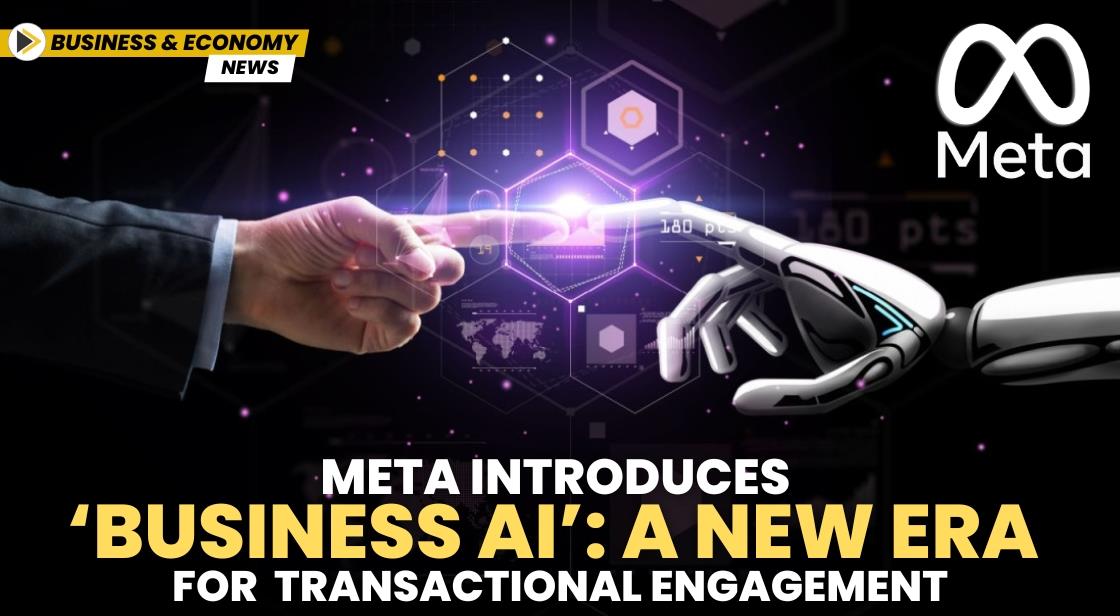Meta Introduces ‘Business AI’: A New Era for Transactional Engagement

News Synopsis
Meta is once again venturing into the realm of AI-driven engagement with its latest initiative: 'Business AI'. This new development seeks to enhance transactional interactions within its apps by leveraging artificial intelligence. However, past attempts at integrating AI into user interactions have met with mixed results. Let’s dive into Meta’s latest strategy and assess its potential impact.
Meta’s AI Journey: From Messenger Bots to ‘Business AI’
Meta's pursuit of AI-driven interaction is not new. The company initially experimented with Messenger bots in 2016, a venture that failed to capture widespread user interest. This was followed by an attempt last year with celebrity-styled, AI-powered bots, which also did not achieve significant traction, leading to their eventual discontinuation.
Despite these setbacks, Meta is pressing forward with its latest project: 'Business AI'. This initiative involves developing AI bots that creators and influencers can use to replicate interactions with their followers. The goal is to streamline responses to follower interactions, allowing users to focus more on content creation rather than engaging in every conversation manually.
Meta’s Vision for ‘Business AI’
In a recent Q2 earnings call, Meta CEO Mark Zuckerberg outlined the future applications of AI chatbots for businesses. According to Zuckerberg: “Our goal is to make it easy for every business to pull their content and catalog into an AI agent that drives sales and saves them money. When it’s working at scale, I expect it to dramatically accelerate our business messaging revenue.”
The concept involves creating AI bots that can access a business’s entire product catalog and provide personalized customer service directly within Meta's apps. This approach mirrors the original vision of Messenger bots but aims to leverage advancements in AI technology to deliver more effective results.
Challenges and Opportunities
Despite the promising vision, Meta faces significant challenges. Past efforts to integrate AI into user interactions have not been well-received, with users often preferring genuine human interaction over AI simulations. The introduction of AI chatbots that mimic human interactions might encounter similar resistance.
However, there are distinct opportunities in transactional interactions. AI can enhance efficiency by streamlining processes like order placements and customer inquiries. Meta’s new ‘Business AI’ could provide a valuable tool for businesses looking to automate and personalize their customer engagement, potentially offering a more seamless and efficient experience.
The Future of AI in Meta’s Ecosystem
Meta’s broader strategy includes integrating AI into its advertising and creative tools. The company envisions a future where advertisers only need to select a goal and budget, with AI handling tasks like ad creation, targeting, and optimization. This evolution represents a significant shift towards automation and smart technology in digital advertising.
While Meta continues to refine its AI capabilities, it remains crucial for the company to learn from past experiences with chatbots. Ensuring that new AI tools offer genuine value and align with user expectations will be key to their success.
Conclusion
Meta's ambitious foray into 'Business AI' represents a significant evolution in how the company aims to leverage artificial intelligence to enhance user and business interactions. While Meta's previous attempts to integrate AI into user engagement have faced challenges, the new focus on transactional AI could provide a valuable tool for businesses seeking efficiency and personalization in customer interactions.
The success of this initiative will depend on Meta’s ability to deliver genuine value through AI while addressing past shortcomings. By streamlining transactional processes and integrating smarter AI technology, Meta hopes to offer a more seamless and effective solution for businesses. As the technology continues to evolve, it will be crucial for Meta to learn from its past experiences and adapt to user preferences to ensure the success of its latest AI venture.
You May Like









